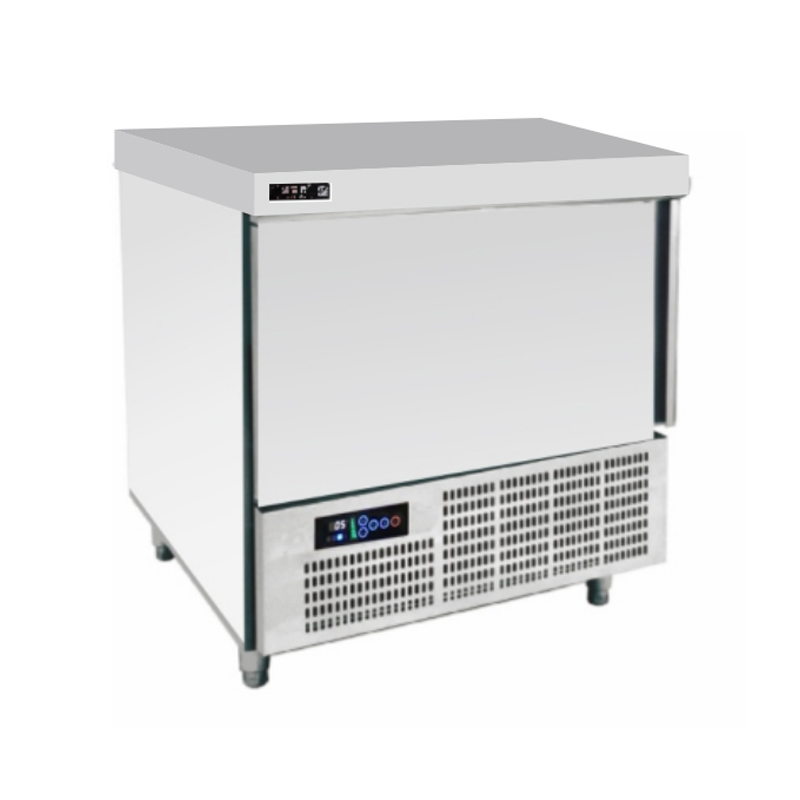2025-04-23
Do Commercial Refrigerators Have Temperature Fluctuation or Door Failure Alarms?
In the world of commercial refrigeration, maintaining a consistent temperature is paramount. Whether you're running a hotel kitchen, a supermarket, or a medical facility, a single lapse in temperature control can lead to product spoilage, health risks, and significant financial losses. The question arises: do commercial refrigerators come equipped with alarms to detect temperature fluctuations or door failures? The answer is yes, and these advanced alarm systems are essential for ensuring the integrity of your refrigeration equipment and the safety of your goods.
The Critical Role of Temperature in Commercial Refrigeration
Temperature stability is the cornerstone of every commercial refrigeration system. Fluctuations, even subtle ones, can result in catastrophic consequences, particularly for businesses that deal with perishable goods. For instance, in the food industry, a small temperature deviation can compromise the freshness of ingredients, leading to wastage, foodborne illnesses, and damaged customer trust.
To combat these risks, commercial refrigerators are often designed with sophisticated sensors that continuously monitor the internal temperature. These sensors are highly sensitive and calibrated to detect the slightest variation. If a temperature anomaly occurs, an alarm system is triggered to alert the operator, often before the temperature has risen or fallen to a level that could compromise product safety.
Door Failure: A Hidden Yet Dangerous Issue
While temperature fluctuation is a well-known challenge, door failure is another silent culprit that can jeopardize the integrity of refrigerated goods. If the door seal becomes damaged or the door doesn’t close properly, cold air escapes, causing the temperature to rise inside the refrigerator. This issue is often unnoticed until it’s too late, as the change might not be immediately visible or noticeable.
To address this, modern commercial refrigerators are increasingly equipped with door failure alarms. These systems detect when the refrigerator door has been left ajar or if there is a malfunction in the door seal. Once the door is not properly closed, the system immediately activates an alarm to notify the operator, preventing prolonged exposure to an unfavorable temperature environment that could compromise the contents.
The Benefits of Alarm Systems in Commercial Refrigeration
The inclusion of temperature fluctuation and door failure alarms in commercial refrigeration units offers several compelling advantages. First and foremost, these systems provide real-time monitoring and immediate notifications, allowing for swift action to mitigate any risks. This proactive approach is essential in preventing major product loss and maintaining operational efficiency.

Moreover, these alarms offer peace of mind. In environments where multiple refrigerators are operating simultaneously, manual monitoring of each unit is impractical. Automated alerts streamline the management process, ensuring that operators can focus on other critical tasks while relying on the system to detect any issues.
Another significant benefit is the protection of brand reputation. A reliable refrigeration system that operates without failure demonstrates a business’s commitment to quality and customer satisfaction. For industries such as healthcare, where precise temperature control is crucial for storing sensitive medications or vaccines, having these alarms can be a matter of life or death.
Modern commercial refrigerators are equipped with advanced alarms designed to protect both the equipment and the products inside. Temperature fluctuation alarms and door failure alarms are indispensable tools that help businesses maintain the highest standards of safety and quality. Whether you're managing a restaurant kitchen or a hospital pharmacy, these alarm systems provide an added layer of security that ensures your refrigeration units perform at their best—24/7, without fail.

 English
English русский
русский Español
Español عربى
عربى






